Saint of the Day – 18 July – Saint Arnulf of Metz (c 580-640) Bishop of Metz, France, Monk, miracle-worker, widower and father. Born in c 580 at Lay-Saint-Christophe, France and died in c 640 near Remiremont , France. Also known as – Arnold, Arnoul. Patronage – of Brewers.
The Roman Martyrology states of him today: “At Metz in France, St Arnulf, a Bishop illustrious for holiness and the gift of miracles. He chose an eremitical life and ended his blessed career in peace.”
Arnulf’s parents belonged to a distinguished Frankish family and lived in the eastern section of the kingdom founded by Clovis.
In the school where Arnulf was placed as a boy, he excelled through his talent and his good behaviour. According to the custom of the age, he was sent in due time to the Court of Theodebert II, King of Austrasia (595-612), to be initiated in the various branches of the government. Under the guidance of Gundulf, the Mayor of the Palace, he soon became so proficient that he was placed on the regular list of Royal Officers and among the first of the King’s ministers. He distinguished himself both as a military commander as well as in the civil administration and at one time, he had six distinct Provinces under his care.
In due course, Arnulf was married to a Frankish woman of noble lineage, by whom he had two sons – Anseghisel and Clodulf. While Arnulf was enjoying worldly emoluments and honours, he did not forget higher and spiritual things. His thoughts often dwelt on monasteries and with his friend Romaricus, also an Officer of the Court, he planned to make a pilgrimage to the Abbey of Lérins, evidently for the purpose of devoting his life to God.
However, in the meantime, the Episcopal See of Metz became vacant. Arnulf was universally designated as a worthy candidate for the office and he was Consecrated Bishop of that See around 611, before this he had become a widower. In his new position he set the example of a virtuous life to his community and attended to matters of ecclesiastical government. In 625 he took part in a Council held by the Frankish Bishops at Reims. With all these different activities, Arnulf still retained his station at the Court of the King, and played a prominent role in the national life of his people.
In 613, after the death of Theodebert, he, with Pepin of Landen and other nobles, called on Clothaire II, King of Neustria with a view to friendship. When, in 625, the realm of Austrasia was entrusted to the late King’s son Dagobert, Arnulf became, not only the tutor but also the chief minister, of the young King. At the time of the estrangement between the two Kings, (Clothaire II and Dagobert) in 625 Arnulf, with other Bishops and nobles, tried to bring about a reconciliation. Arnulf now dreaded the responsibilities of the episcopal office, and grew weary of Court life.
About the year 626 he obtained the appointment of a successor to the Episcopal See of Metz and he and his friend, Romaricus withdrew to a solitary place in the mountains of the Vosges. There he lived in communion with God until his death.
His remains, interred by Romaricus, were transferred about a year afterwards, by Bishop Goeric, to the Basilica of the Holy Apostles in Metz.
Miracles of St Arnulf:
Arnulf was tormented by the violence that surrounded him and feared that he had played a role in the wars and murders that plagued the ruling families. Obsessed by these sins, Arnulf went to a bridge over the Moselle river. There he took off his Bishop’s ring and threw it into the river, praying to God to give him a sign of absolution by returning the ring to him. Many penitent years later, a fisherman brought to the Bishop’s kitchen a fish in the stomach of which was found the Bishop’s ring. Arnulf repaid the sign of God by immediately retiring as Bishop and becoming a hermit for the remainder of his life.
At the moment Arnulf resigned as Bishop, a fire broke out in the cellars of the Royal Palace and threatened to spread throughout the City of Metz. Arnulf, full of courage and feeling unity with the townspeople, stood before the fire and said, “If God wants me to be consumed, I am in His hands.” He then made the Sign of the Cross, at which point, the fire immediately abated.
It was July 642 and very hot, when the Parishioners of Metz, went to Remiremont to recover the remains of their former Bishop. They had little to drink and the terrain was inhospitable. At the point when the exhausted procession was about to leave Champigneulles, one of the Parishioners, Duc Notto, prayed “By his powerful intercession the Blessed Arnold will bring us what we lack.” Immediately, the small remnant of beer at the bottom of a pot multiplied, in such amounts, that the pilgrims’ thirst was quenched and they had enough to enjoy the next evening when they arrived in Metz. For this reason he is known as the Patron Saint of Brewers.

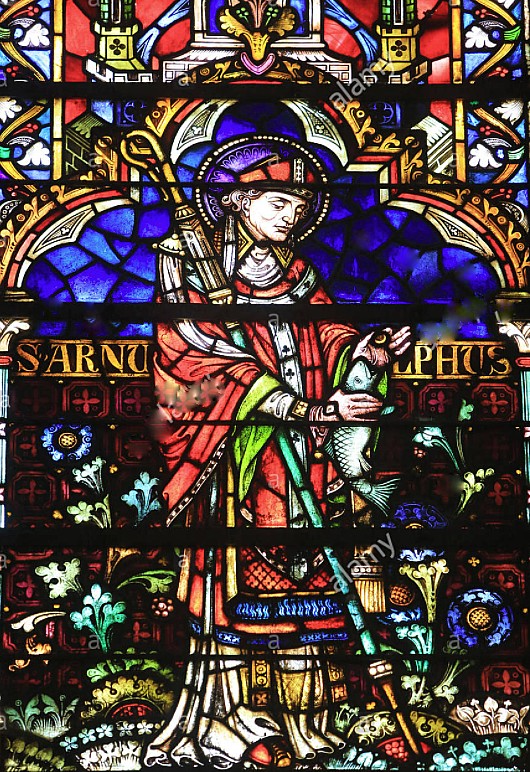
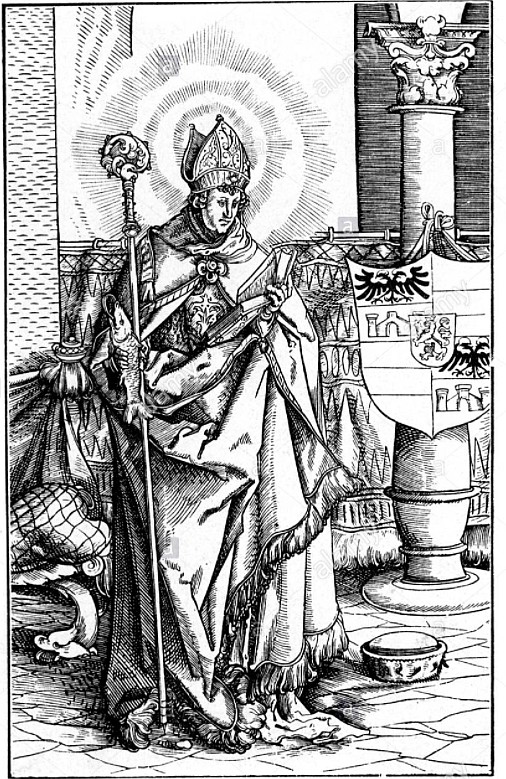
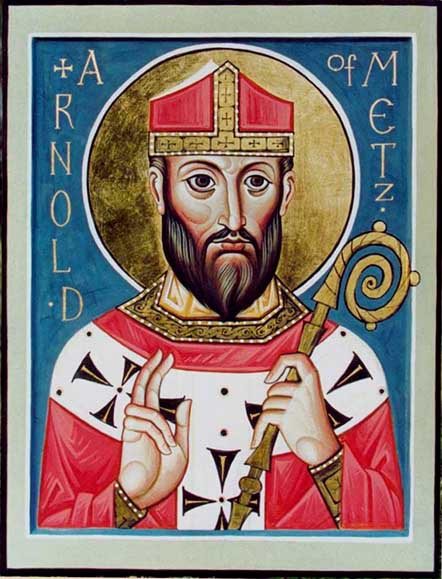
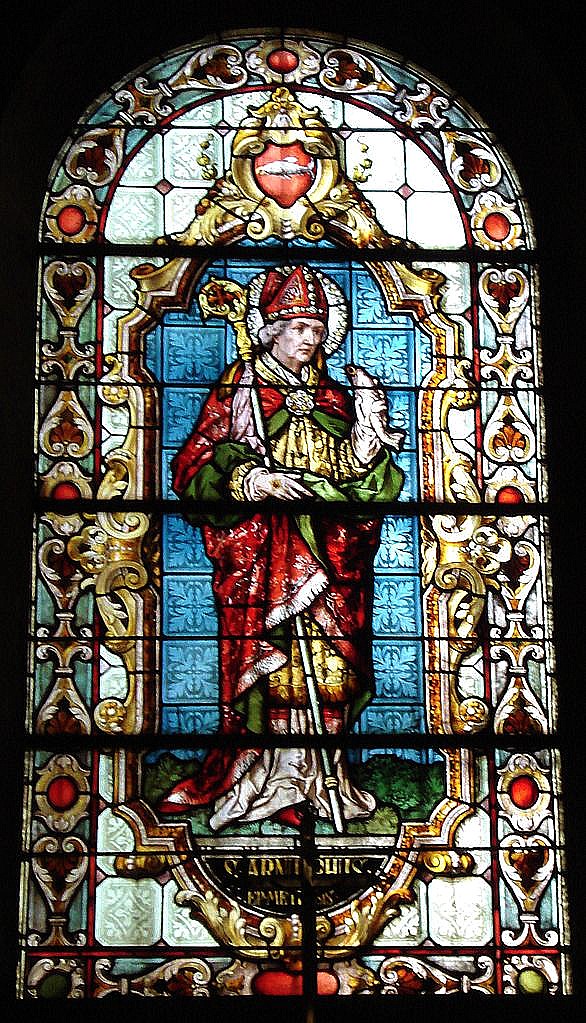
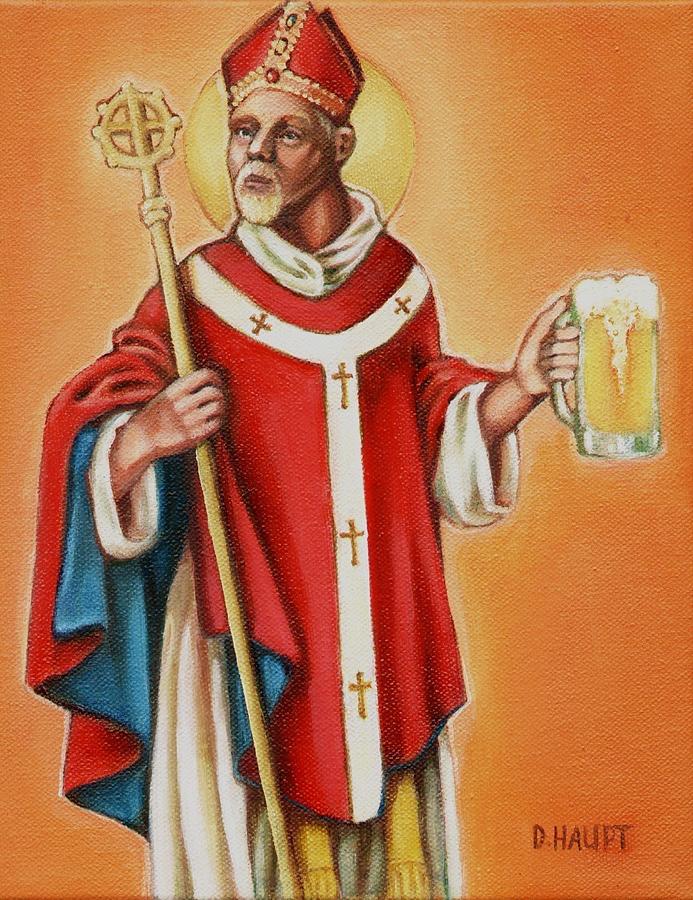
Lo and behold, another lamp lit but under a bushel basket. Thanks for posting this example of excellence in leadership. It can be done! (It was done!) 👆👇✌️👍✊
LikeLike